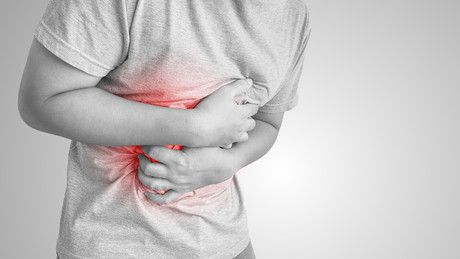Crohn's disease treatment could lie in patients' own cells

UK researchers have developed a technique that uses Crohn’s disease patients’ own modified cells to treat the condition, with a clinical trial expected to start in the next six months. Their work has been published in the journal Gastroenterology.
Crohn’s disease is a lifelong condition in which parts of the digestive system become severely inflamed, causing a range of symptoms such as diarrhoea, stomach aches, tiredness and weight loss. Its causes are unknown, but the immune system is known to play a part. It is estimated to affect around 620,000 people in the UK.
“While the treatments available for Crohn’s disease have increased over recent years, they only work in some patients,” said Dr Peter Irving, a consultant gastroenterologist and co-author on the new study. “In addition, the treatments have potentially serious side effects in some patients.”
Investigating this often debilitating condition, Dr Irving and fellow researchers at the NIHR Guy’s and St Thomas’ Biomedical Research Centre (BRC) studied white blood cells taken from patients who have Crohn’s disease and compared them to cells of healthy people. They found that specialised white blood cells called regulatory T cells from Crohn’s patients produced less of a gut-specific protein called integrin α4β7 than regulatory T cells from healthy people.
Working with the specialists at the NIHR Guy’s and St Thomas’ BRC’s Advanced Therapies Manufacturing Platform, the researchers developed a cell therapy technique based on these findings. This technique involves developing cells from the Crohn’s disease patients with a molecule called RAR568, which restores healthy levels of integrin α4β7 and thus makes them behave more like cells from healthy people. The cells are then given back to patients by intravenous infusion.
“This is the next frontier in cell therapy, as we’re going beyond treating the symptoms of Crohn’s disease and trying to reset the immune system to address the condition,” said research leader Professor Graham Lord, previously director of the BRC.
“It’s a real home-grown treatment in the sense that we started with observing cells and tissues donated by patients at Guy’s and St Thomas’, have developed a treatment, and are now starting to undertake trials.”
Having been proved effective in human cells, the technique is now ready for use in a clinical trial. The proposed Tribute Trial will test whether the treatment is safe and effective for treating Crohn’s disease.
“This research paves the way for a trial of using patients’ own cells to treat their Crohn’s disease and we look forward to offering people the chance to take part in the very near future,” Dr Irving said.
Please follow us and share on Twitter and Facebook. You can also subscribe for FREE to our weekly newsletters and bimonthly magazine.
argenx and Monash University partner against autoimmune diseases
To advance a pioneering molecule for autoimmune diseases, global immunology company argenx has...
Archer completes potassium sensing alpha prototype
Quantum technology company Archer Materials Limited has developed an early Biochip prototype...
Farm animals and aquaculture cryopreservation partnership announced
Vitrafy Life Sciences Limited has announced that it has entered a 12-month exclusive agreement...



